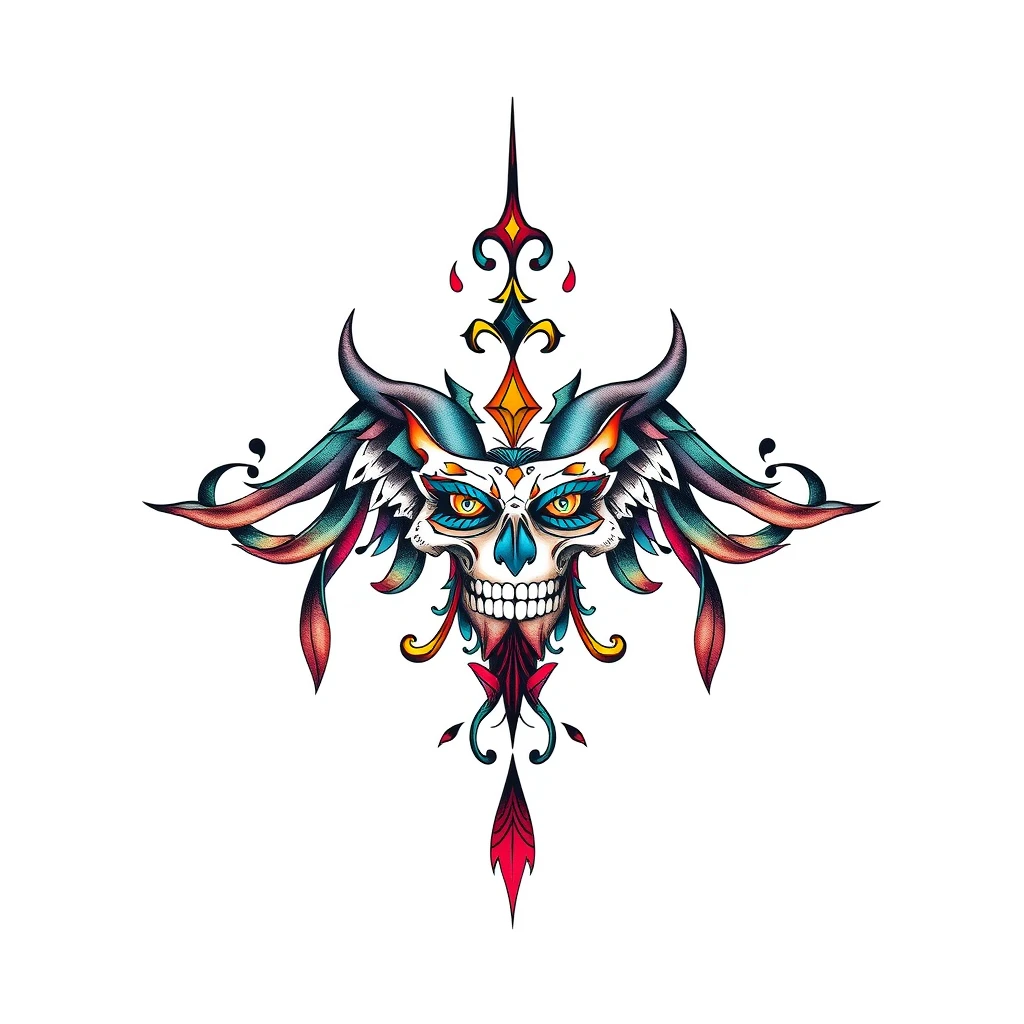The term 'Simulacrum' refers to an image or representation of someone or something. In the context of tattoos, Simulacrum tattoos embody the idea of representing one's inner self, emotions, or beliefs through visual aesthetics. These tattoos often reflect a personal narrative or philosophical perspective, merging art and identity in a profound way.
Symbolism of Simulacrum Tattoos
Self-Representation
Simulacrum tattoos serve as a powerful means of self-representation. They often symbolize the wearer's identity, serving as a reflection of who they are or wish to be. This can include personal struggles, triumphs, or aspirations, making the tattoo a unique narrative of the individual's life journey.
Reality vs. Illusion
Another common interpretation associated with Simulacrum is the exploration of the distinction between reality and illusion. These tattoos can provoke thought regarding how we perceive the world around us, challenging individuals to consider the layers of reality and the images or replicas that fill our lives.
Philosophical Reflection
Simulacrum tattoos can also embody philosophical concepts, particularly those related to postmodernism. Philosophers like Jean Baudrillard have defined simulacra as copies that depict things that either had no original or that no longer have an original. Thus, tattoos of this nature can prompt reflection on authenticity and existence.
Personal Transformation
For many, a Simulacrum tattoo signifies personal transformation or metamorphosis. It captures the essence of change, representing the evolution of one's thoughts, beliefs, and identity over time. This symbolism resonates deeply with individuals who have undergone significant life changes.
Cultural Significance
In various cultures, Simulacrum holds a unique symbolism that diverges from its artistic representation. The concept has been explored in literature, art, and philosophy, emphasizing the relationship between images and reality. Some interpretations include:
- Native American Culture: Simulacrum can represent spirits or totemic images, where symbols denote connection to ancestors and heritage.
- Western Philosophy: The term often inspires discussions on the nature of reality in postmodern thought, particularly in relation to technology and culture.
- Eastern Philosophies: In some interpretations, Simulacrum reflects the illusionary nature of existence, emphasizing the importance of inner truth over superficial representations.
Popular Simulacrum Tattoo Designs
- Abstract Faces: These designs often symbolize the complexity of identity, featuring fragmented faces that represent different aspects of self.
- Philosophical Quotes: Many choose to integrate quotes related to reality and perception to enhance the meaning behind their tattoo.
- Surreal Landscapes: Landscape images that challenge reality can depict the contrast between experience and observation.
- Animal Symbolism: Animals depicted in stylized forms can signify personal totems or guardians, representing aspects of the wearer's nature.
- Geometric Patterns: Geometric tattoos can represent order amidst chaos, exploring the boundaries between reality and illusion.
Ultimately, the meanings behind Simulacrum tattoos are deeply personal and subjective. Each individual's interpretation is shaped by their experiences, beliefs, and emotions, allowing for a rich tapestry of meanings that celebrate personal narratives through art.

